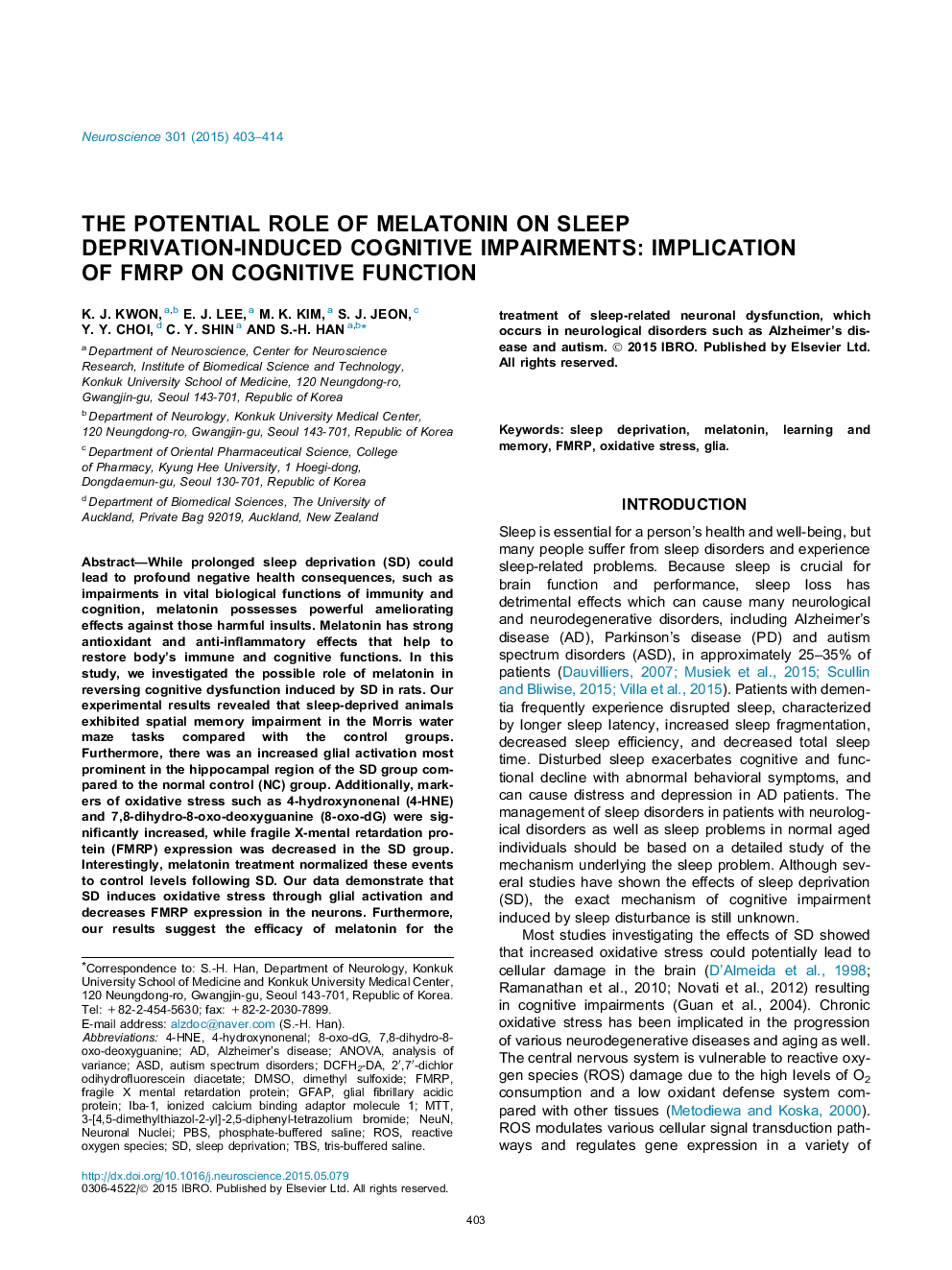| Article ID | Journal | Published Year | Pages | File Type |
|---|---|---|---|---|
| 6272122 | Neuroscience | 2015 | 12 Pages |
â¢Sleep deprivation leads to cognitive decline.â¢Sleep deprivation induces glial activation and oxidative stress.â¢Sleep deprivation alters the balance of FMRP expression in the brain.â¢Melatonin prevents neuronal cell death and ROS production through FMRP regulation.
While prolonged sleep deprivation (SD) could lead to profound negative health consequences, such as impairments in vital biological functions of immunity and cognition, melatonin possesses powerful ameliorating effects against those harmful insults. Melatonin has strong antioxidant and anti-inflammatory effects that help to restore body's immune and cognitive functions. In this study, we investigated the possible role of melatonin in reversing cognitive dysfunction induced by SD in rats. Our experimental results revealed that sleep-deprived animals exhibited spatial memory impairment in the Morris water maze tasks compared with the control groups. Furthermore, there was an increased glial activation most prominent in the hippocampal region of the SD group compared to the normal control (NC) group. Additionally, markers of oxidative stress such as 4-hydroxynonenal (4-HNE) and 7,8-dihydro-8-oxo-deoxyguanine (8-oxo-dG) were significantly increased, while fragile X-mental retardation protein (FMRP) expression was decreased in the SD group. Interestingly, melatonin treatment normalized these events to control levels following SD. Our data demonstrate that SD induces oxidative stress through glial activation and decreases FMRP expression in the neurons. Furthermore, our results suggest the efficacy of melatonin for the treatment of sleep-related neuronal dysfunction, which occurs in neurological disorders such as Alzheimer's disease and autism.
